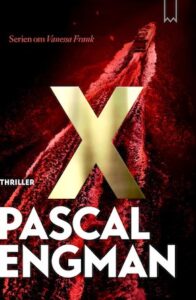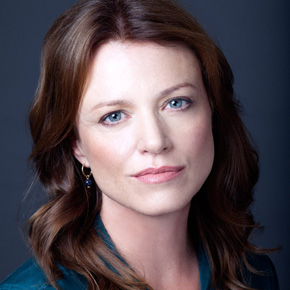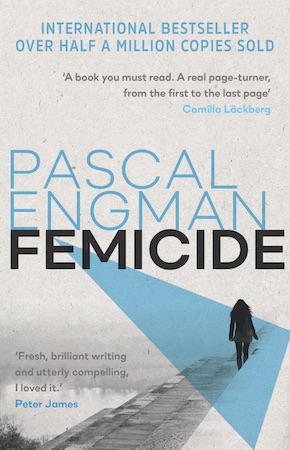Pascal Engman: Contact at any price
by Karin SalvalaggioAccording to Wikipedia, an incel, or involuntary celibate, is “a member of an online subculture of people who define themselves as unable to get a romantic or sexual partner despite desiring one.” United by a lethal form of misogyny, male adherents are becoming increasingly emboldened. Deadly attacks from Toronto to Tallahassee and Santa Barbara are celebrated and the male perpetrators lionised.
Pascal Engman’s Femicide shines a harsh spotlight on just how far incel fanatics, intent on doing harm, will go to infiltrate women’s lives through the use of technology and social media. Identities are stolen, profiles faked, and the use of real-time geolocation tagging makes it easy to stalk potential victims through applications such as Instagram. The novel will be a wake-up call for readers who normally associate Sweden with high levels of gender equality, Volvos and ABBA. It turns out that the country that introduced the world to the joys of flat-pack furniture has “the highest number of incels in the world per capita.”
The novel opens with the brutal murder of a young woman named Emelie Rydén. The killing presents as an open-and-shut case, but Vanessa Frank, the pragmatic detective brought in to investigate the crime, soon starts to see inconsistencies. With time, and through multiple points of view representing a rich cross-section of Swedish society, the city of Stockholm and its myriad problems are laid bare.
Pascal doesn’t shy away from depicting disturbing acts of brutality against women. The writing is clinical but never detached. It is a fine balance that the author handles with care. Anything less would be a disservice to the women who’ve been victimised. Though bleak, this isn’t a world without hope. There are stories of sacrifice, love and friendship throughout the book, the most touching coming from places that, to the outside observer, seem the most hopeless of all.
As a journalist you can’t lie, but as a novelist you can lie as much as you want. That is such a blessing. But yes, I spent months doing research.”
Karin: Femicide has a complex and appropriately violent storyline told through multiple points of view, the principal one being the female detective at the centre of the Emelie Rydén murder case, Vanessa Frank. Why did you choose this format?
Pascal: I think that several perspectives are ideal when you want to go deep into a story, so that you can portray different aspects of the matter. But I also like to travel within society, with the ambition to present a diversified world for the reader.
Your approach to storytelling is meticulous. It is immediately apparent that you are someone who does a great deal of research. You were a journalist before you became a novelist. How do you think this affects your approach to writing novels? Jasmina is a journalist who finds herself in the centre of the murder case she’s working on. I read that you were partly inspired to write Femicide because of the hateful online abuse your former female colleagues received. How has the book been received by Swedish women? I imagine it’s been a bit of an eye-opener.
Well, first of all, as a journalist you can’t lie, but as a novelist you can lie as much as you want. That is such a blessing. But yes, I spent months doing research. Femicide has been very well received, especially by Swedish women. The incel movement was unknown in Sweden when the novel was published and it led to a big nationwide debate about incels. The reason I wrote it was because I started my research on incels after a big terror attack in Toronto in 2018. I entered the forums and was shocked. One of the first comments I read was, “I’ll drink a beer for every victim that turns out to be a woman between 18-35.” I’ll never, never forget those months.
The incel movement was started when a Canadian woman set up a Facebook group for people who felt marginalised in the dating world and therefore had little chance at finding a sexual partner. The group was soon infiltrated by hordes of angry men, and through them an insidious movement was born. I was naïve enough to think that incels were only active in North America, but it seems that the group has gone international. How did you research incel groups in Sweden? Did you manage to infiltrate any of their online communities? Are the anonymous quotes at the beginning of the novel’s sections genuine? The problem seems unsolvable. Do you see any hope for the future?
 Actually, Sweden has the highest number of incels in the world per capita, according to a recent study. All the quotes are from real incel forums. I didn’t need to infiltrate them at the time as they were all open for anyone to see them. So it was a pretty easy task creating the characters, using their very dark world of hate as a blueprint. One aspect that really made me sad was that the majority of these men were so young, and so full of hate and misogyny.
Actually, Sweden has the highest number of incels in the world per capita, according to a recent study. All the quotes are from real incel forums. I didn’t need to infiltrate them at the time as they were all open for anyone to see them. So it was a pretty easy task creating the characters, using their very dark world of hate as a blueprint. One aspect that really made me sad was that the majority of these men were so young, and so full of hate and misogyny.
Vanessa Frank is a compelling character with a complex personal history touched by tragedy and loneliness. Empathetic but direct, she possesses a clear moral compass but is willing to bend the rules when humans with the right intentions get caught up in the messiness of being alive. Her scenes with Nicholas, Jasmina and Celine are particularly touching. What was the inspiration behind Vanessa’s character?
As a reporter, I met a police detective who didn’t come from the typical police investigator background. She had been a dancer in her youth. So that is why Vanessa has this upper-class background, which is very, very uncommon in the Swedish police force. And the name Frank is a homage to the man who gave me my first job as a reporter. When I was 24 I sent a column to every newspaper in Sweden. No one answered except a local newspaper in the south of the country, Trelleborgs Allehanda. The editor in chief thought that I lived nearby, and invited me to lunch. I hired a car and drove for eight hours to get there. We had the lunch. Afterwards he said he liked me but that he couldn’t give me a job due to my lack of journalistic education and experience. I said OK and prepared to leave. He asked me if I lived nearby, I told him I lived in Stockholm, and when he realised I drove 600 kilometres just to have lunch he said, “Screw it,” and offered me a test assignment. His name is Rickard Frank.
All the quotes are from real incel forums. I didn’t need to infiltrate them as they were all open for anyone to see them. So it was a pretty easy task creating the characters, using their very dark world of hate as a blueprint.”
Romantic ideals have shifted in the wake of the #MeToo movement. Toxic men hold far less appeal than they once did. Many women are learning to see the signs and are steering clear whenever possible. I’m grateful that Femicide provides the reader with many examples of male characters who treat the women in their lives with respect and love. For every Karim, there is a Nicholas, for every Oscar there is an Ove, and for every Tom there is a Börje. Was creating this balance intentional or was it something that evolved organically?
Thank you so much for those words. Well, that evolved organically. Börje is actually based on a real person. One summer I spent about two weeks hanging out with a group of homeless alcoholics. It started when I heard that this group always sat drinking on a bench on the platform of Farsta’s Metro station. The platform is elevated about ten metres, so the bench has a nice view. Well, it has a view. Farsta isn’t the most beautiful place on our planet. But these guys called the bench Skybar. And I liked that. So I went there and sat with them for a couple of hours every day, just talking and listening to their stories. And one man told me how he had met this woman, and these beautiful stories of their life, always laughing despite sleeping outside, telling each other jokes, being nice. And I asked him, Where is she? And he said that she had died about a year earlier. She had committed suicide and he didn’t have the strength to visit her grave.
Eva and Börje’s love story is beautiful but tragic. I felt their relationship provided a much-needed symbol of hope in this otherwise desperate and often violent portrayal of Stockholm’s city streets. Börje rises above the indignity of homelessness, giving his life a sense of nobility and purpose. Against all odds, he finds love. “Eva was the only woman he hadn’t let down. She was the proof that he was still able to get things right. She counted on him. She needed him.” Why did you feel it was important to include their point of view?
I think that every story needs a heart, and I always try to use characters to be the heart of my story, in this case Börje and Eva. I don’t know why. They just came to me. And I like portraying genuine goodness. And as I mentioned earlier, it is a real love story. I thought it deserved to be spread, because it is so beautiful.
Femicide is the second novel you’ve written featuring Vanessa Frank. Sadly, I’m unable to find an English translation of the first novel Eldslandet but will read it as soon as it becomes available. What are you working on now and will there be a third novel in the series translated into English?
Yes, the first one, published in Swedish as Eldslandet (Land of Fire) was considered too complicated for you Britons, haha. The third book is called The Widows and is about a terror attack against Stockholm. It’ll be published in the UK in 2023. Actually, here in Sweden the fifth Vanessa Frank novel is published this autumn. It is called X. Hopefully it will be translated too.
 Pascal Engman, born in 1986 in Stockholm to a Swedish mother and a Chilean father, is a former reporter at Expressen. Since publication of his first novel The Patriots in 2017, he has become the best-selling Swedish crime novelist of his generation. His book series about Vanessa Frank has been sold to more than 20 countries. Femicide, translated by Michael Gallagher, is published by Legend Press in paperback and eBook.
Pascal Engman, born in 1986 in Stockholm to a Swedish mother and a Chilean father, is a former reporter at Expressen. Since publication of his first novel The Patriots in 2017, he has become the best-selling Swedish crime novelist of his generation. His book series about Vanessa Frank has been sold to more than 20 countries. Femicide, translated by Michael Gallagher, is published by Legend Press in paperback and eBook.
Read more
pascalengman.com
@pascalengman
@Legend_Times_
Michael Gallagher completed a BA in Scandinavian Studies at the University of East Anglia and worked in public relations for the City of Gothenburg before becoming a full-time literary translator. His other translations include Christoffer Carlsson’s Leo Junker crime series, published in the UK by Scribe, and Zlatan Ibrahimović’s illustrated biography I Am Football (Viking/Penguin).
 Karin Salvalaggio is the author of the Macy Greeley crime novels Bone Dust White, Burnt River, Walleye Junction and Silent Rain and a contributing editor at Bookanista. Her fiction to date is set in towns that border the Montana’s wilderness, a uniquely spectacular landscape she fell in love with as a child. Her proudly independent characters inhabit stories about the American dream gone wrong. She is currently working on a crime novel set in California. Jessica Carson has returned to her conservative roots after working as a cop in Berkeley, one of America’s most liberal cities. The transition is not without difficulties. The police detective she’s replacing was involved in the 6 January riots and her estranged son has become immersed in Antifa.
Karin Salvalaggio is the author of the Macy Greeley crime novels Bone Dust White, Burnt River, Walleye Junction and Silent Rain and a contributing editor at Bookanista. Her fiction to date is set in towns that border the Montana’s wilderness, a uniquely spectacular landscape she fell in love with as a child. Her proudly independent characters inhabit stories about the American dream gone wrong. She is currently working on a crime novel set in California. Jessica Carson has returned to her conservative roots after working as a cop in Berkeley, one of America’s most liberal cities. The transition is not without difficulties. The police detective she’s replacing was involved in the 6 January riots and her estranged son has become immersed in Antifa.
karinsalvalaggio.com
More from Karin on Bookanista
@KarinSalvala


